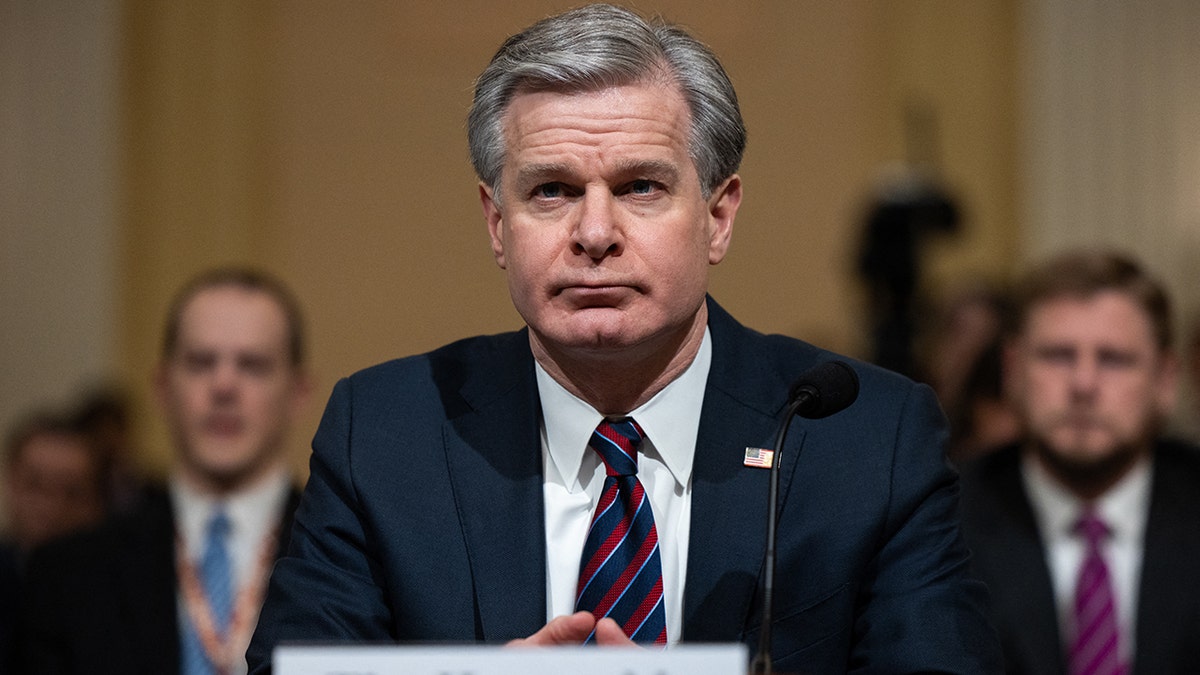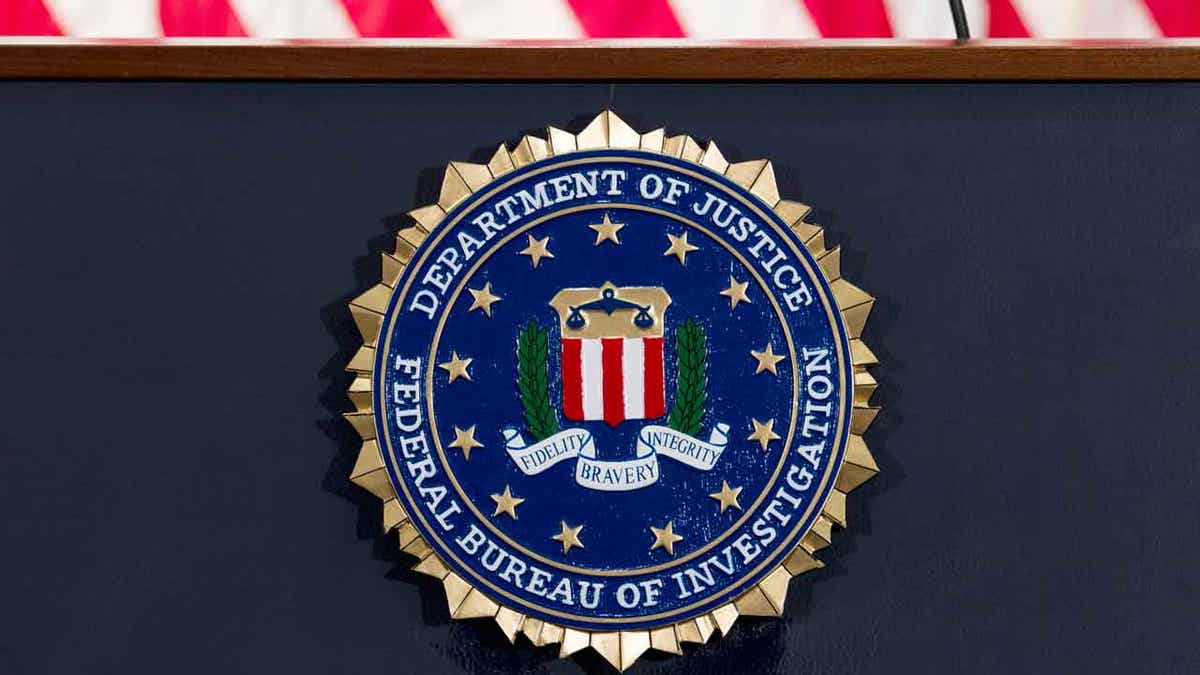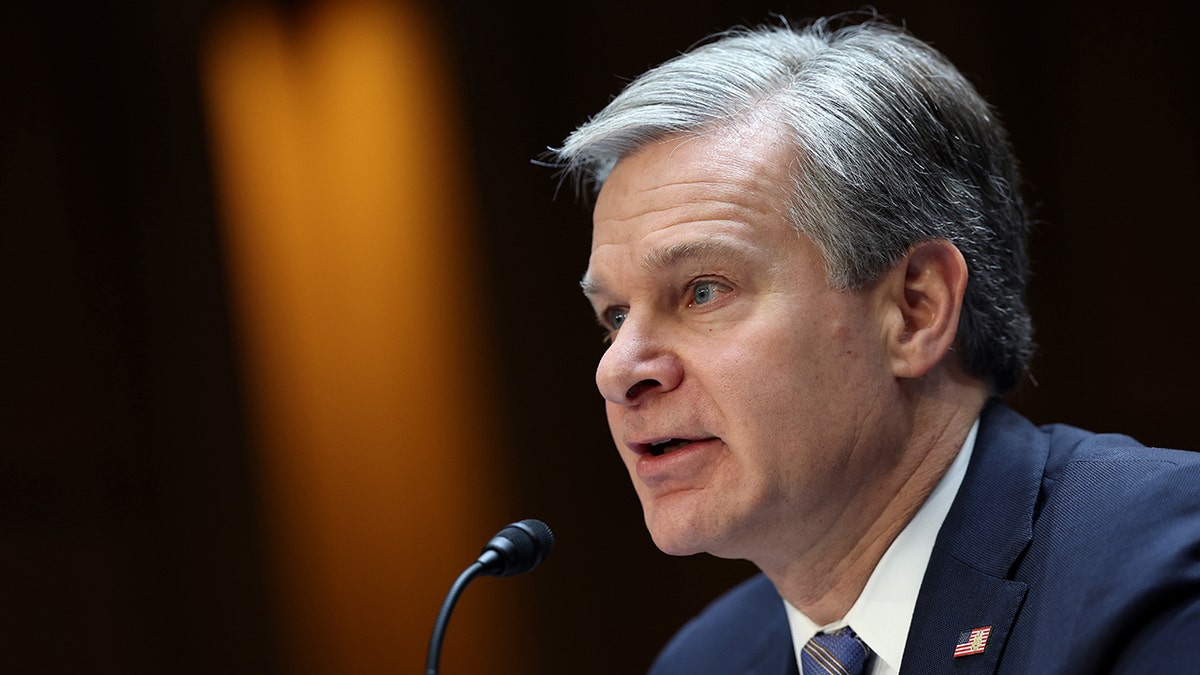Stefanik grills FBI Director Wray over counterintelligence investigation of Biden and Trump campaigns, TikTok
U.S. Rep. Elise Stefanik, R-N.Y., grilled FBI Director Christopher Wray during a House Intelligence Committee hearing on Tuesday over whether there is a counterintelligence investigation of the Trump or Biden campaigns.
FBI Director Christopher Wray on Thursday will warn of an "elevated threat" to U.S. public safety and national security while advocating for an increased budget.
"Looking back over my career in law enforcement, I’d be hard-pressed to think of a time where so many threats to our public safety and national security were so elevated all at once," Wray will say to the House Appropriations subcommittee hearing on Thursday afternoon. "But that is the case as I sit here today. This is not a point when we can let up."
Wray will argue at the hearing that the federal agency needs fiscal support to "tackle these threats" to keep American citizens safe.
"This is by no means a time to let up or dial back. This is a time when we need your support the most — we need all the tools, all the people, and all the resources required to tackle these threats and to keep Americans safe," Wray will say.
HOUSE BRACES FOR BATTLE OVER RENEWING CONTROVERSIAL FISA SURVEILLANCE TOOL

FBI Director Christopher Wray testifies during a congressional hearing on China cyber threats, in Washington, D.C., on Jan. 31. (Julia Nikhinson/AFP via Getty Images)
Wray will say that the FBI's "immediate concern" is that individuals will draw inspiration from the ongoing Israel-Hamas conflict in the Middle East and carry out terrorist attacks in the U.S.
He will point to the Russia Concert Hall terrorist attack that left 144 people dead in the worst assault on Russian soil in two decades.
"…Our most immediate concern has been that individuals or small groups will draw twisted inspiration from the events in the Middle East to carry out attacks here at home. But now increasingly concerning is the potential for a coordinated attack here in the homeland, akin to the ISIS-K attack we saw at the Russia Concert Hall a couple weeks ago," he will say.

The FBI's "immediate concern" is individuals inspired by the Israel-Hamas war to carry out terrorist attacks in the U.S. (AP Photo/Jose Luis Magana/File)
Wray will push for Congress to reauthorize Section 702 of the Foreign Intelligence Surveillance Act (FISA), which monitors foreign nationals overseas and is set to expire on April 19.
"… An absolutely indispensable tool for Congress can give us in our fight against foreign adversaries is the reauthorization of Section 702 of the Foreign Intelligence Surveillance Act," he will say. "It's critical in securing our nation, and we're in crunch time."
FBI DIRECTOR SAYS CHINESE HACKERS ARE 'POISED TO ATTACK' AS INFILTRATIONS REACH 'FEVER PITCH'
Section 702 has been both credited with preventing terror attacks on U.S. soil and accused of being a vehicle for spying on U.S. citizens.
The FBI has been accused of improperly using Section 702 to spy on Black Lives Matter protesters in the summer of 2020 as well as people who rioted at the U.S. Capitol on Jan. 6, 2021.

FBI Director Christopher Wray is expected to push for Congress to reauthorize Section 702 of the Foreign Intelligence Surveillance Act (FISA), which monitors foreign nationals overseas. It is set to expire April 19. (Kevin Dietsch/Getty Images)
The FBI director will warn that budget cuts to the agency would affect more than just FBI operations; they would directly impact partners in state and local law enforcement.
"Every day, FBI agents, analysts and professional staff are working shoulder to shoulder with thousands of task force officers from hundreds of different police departments and sheriffs’ offices all over the country on our FBI-led task forces," Wray will say. "On top of that, we provide technology and expertise, valuable investigative leads like DNA matches, and cutting-edge training to law enforcement nationwide to help them keep our communities safe."
CLICK HERE TO GET THE FOX NEWS APP
"So cuts to us are cuts to our partners — state and local law enforcement agencies and officers who are on the ground, putting themselves in the line of fire — often quite literally," Wray will say.





















